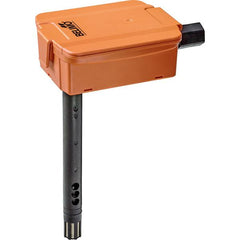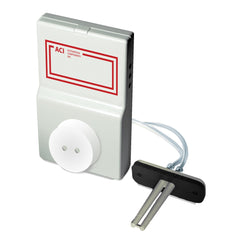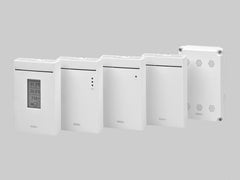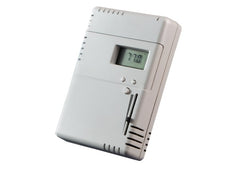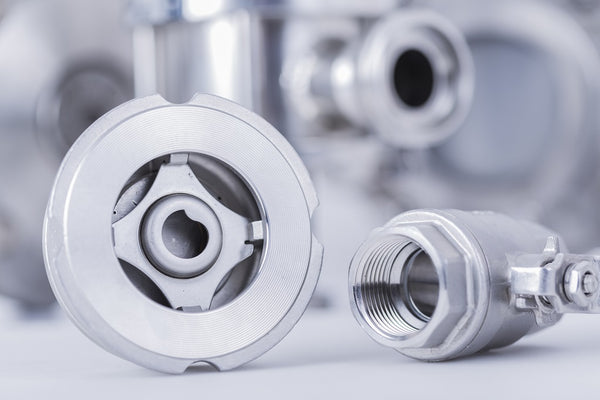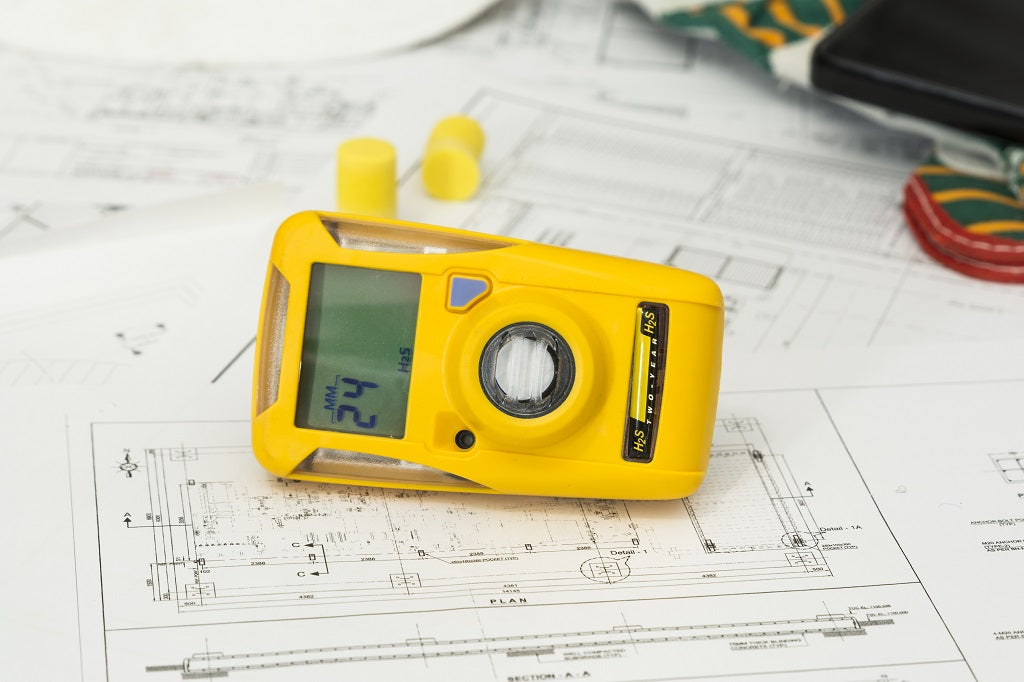
Table of Contents
The gas sensor is essential safety equipment for homes and commercial buildings. They add a layer of protection to your property and help secure your family, workers, and customers. If you want protection against poisonous gasses, explosive atmospheres, and other substances that could be considered hazardous — a gas detector should be imperative.
At Blackhawk Supply, we have decades of experience working with safety equipment, including gas detector (alarm) systems. We will tell you about different types of leak (gas) sensors for home and commercial environments.
But first, let’s start with the basics.
What Is a Gas Sensor?
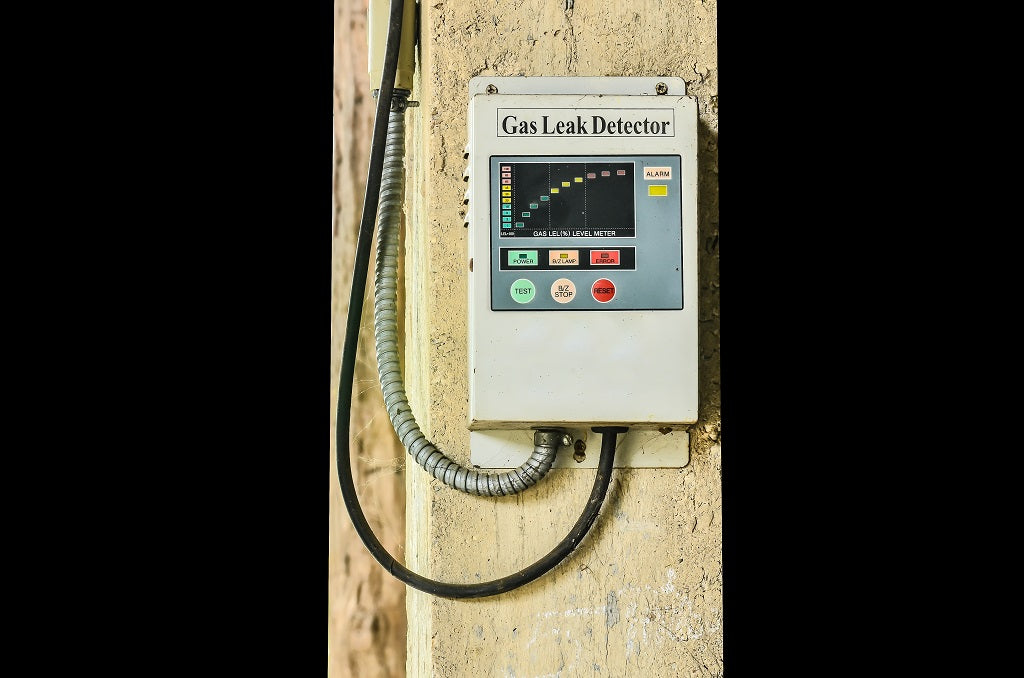
A gas detector is a device that identifies and measures the concentration of airborne gasses and other chemicals in specific environments.
Older stationary gas sensors were designed to detect only one type of gas (usually in small workplace areas). However, modern sensors can detect multiple airborne pollutants. You can even combine these devices to create a linked gas detector alarm system.
Alternatively, you can use personal (portable) gas detectors. These devices present a convenient and cost-effective way to check for gas leaks wherever you go.
Gas detectors for houses and commercial environments are categorized based on the technology used to monitor the gasses. Let’s talk about the way these devices work in more detail.
How Do Gas Detectors Work?
Most gases used in homes and working environments are practically invisible to the human eye. Worst of all, many of them lack an odor, making them impossible to detect without a gas detector (alarm) device.
The gas detector working principle depends on the tech behind the device. The most popular categories of gas sensors are:
- Catalytic. A common gas sensor with a platinum-treated wire coil that oxidizes if it detects combustible and explosive gasses.
- Infrared. A detector that uses transmitters that measure fluctuations in the light transmission (between the receiver and transmitter) to spot combustible gases, such as hydrocarbon vapors.
- Electrochemical. Electronic gas leak detectors can identify hazardous gases like carbon monoxide, chlorine, and nitrogen oxides by sensing electrode signals in the air.
- Metal Oxide. Metal Oxide semiconductors are designed to detect toxic gases and combustibles using a gas-sensitive film. These sensors are typically used for low-humidity ranges.
Now that we’ve touched on gas detector working technologies, it’s time to look at the devices available on the market.
Types of Gas Detectors
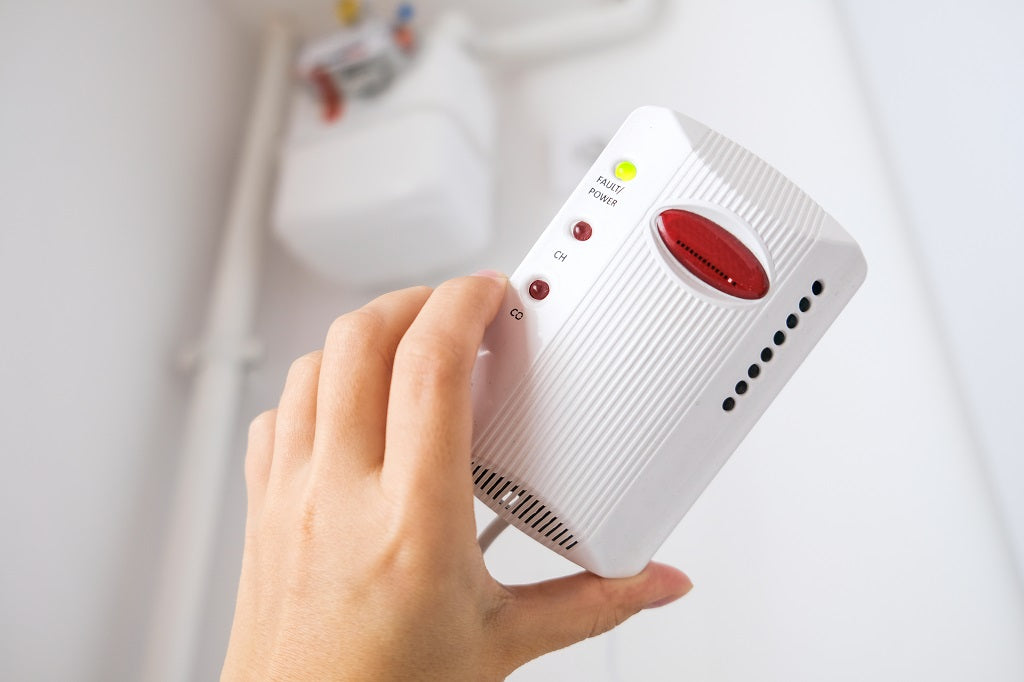
You choose from two different types of gas detectors: portable and fixed ones. Let’s look at them up-close.
Fixed Gas Detector
Fixed gas detectors are usually used in commercial and industrial environments with a large number of people. Many companies enhance their security systems using relays, wall mounts, transmitters, and other gas detector accessories.
Fixed devices are considerably more expensive than portable devices. However, they offer the best protection from toxic and flammable gasses.
Portable Gas Detector
Portable gas detectors allow you to measure gas levels in inaccessible and outdoor areas. You can easily carry a portable toxic gas detector with you to detect gasses in confined spaces. These devices have limited efficiency compared to fixed sensors, but they are also much more flexible, convenient, and cheaper.
Where Can You Use Gas Sensors?
Gas detectors have various applications based on the environment. Let’s see how you can use them for your home or workplace.
Home Gas Leak Detector Applications
- Measuring the level of gasses and airborne pollution.
- Identifying gas leaks.
- Detecting emergency incidents.
Commercial Gas Detector Applications
- Monitoring toxic gas concentration.
- Detecting smoke and fire.
- Checking air quality.
- Detecting fires.
- Measuring the CO2 (carbon dioxide) levels.
These lists are by no means not exhaustive. Besides, the functionality of the gas detector largely depends on the model.
How to Choose the Right Gas Detector
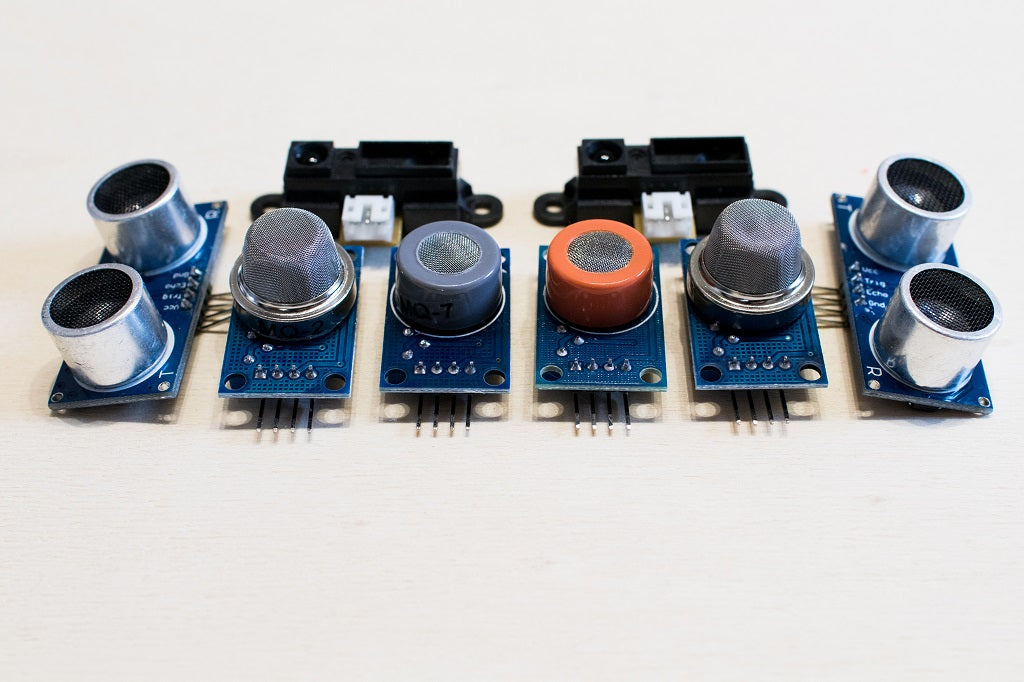
Choosing gas detectors for your home or workplace isn’t hard if you know what to look out for. Let’s go through the most important aspects:
Application
First, you need to consider where you will use your gas detector.
Do you want to feel safer in your home? You might want to get a reliable fixed sensor capable of detecting gas leakages.
If you want to improve safety at the office — consider installing several gas detectors and linking them into one system. And if you’re going to check confined spaces for hazardous substances, you might want to get a portable device.
Gas Detection Capabilities
Some sensors can identify only specific types of gasses. If you work in an industrial environment where people are exposed to propane, butane, or other gasses that are dangerous, the gas detector should be able to monitor these substances accurately.
Experience
Knowledge is crucial if you want to get gas detection equipment that will provide the best protection and integrate with your security systems. Experienced technicians can help you pick a suitable device and help you place it for maximal efficiency. Therefore, you can always ask qualified professionals for help if you have any questions.
Best Gas Detector Brands
Do you want to get a gas detector you can rely on? These brands have no rivals in terms of quality and value for your money.
Belimo
One of the industry’s leaders that offers a wide variety of air quality, dust, and gas sensors. Belimo provides some of the best gas leak detectors for home and industrial applications. For example, their 22DC series duct air sensors offer accurate temperature, humidity, and VOC monitoring.
Honeywell
From compact portable sensors to multifunctional fixed gas detectors — Honeywell has you covered with highly reliable devices for commercial applications.
ACI
This company provides several transmitters and sensors that can help you monitor carbon monoxide, carbon dioxide, nitrogen dioxide, and different types of exhaust in non-hazardous areas. For example, sensors like the T8041 and T8042 series can be installed into your HVAC system.
Vaisala
A leading expert in industrial measurement equipment, Vaisala offers a wide assortment of multifunctional devices, such as the GMW80 transmitter for indoor CO2, temperature, and humidity monitoring.
Veris
Made for homes and commercial uses, this company produces top-notch C02 wall detectors, sensor bases, modules, and myriads of accessories. The CDL/CWL carbon dioxide sensors from Veris can detect fluctuations in CO2 levels in your ventilation system.
Senva Sensors
Senva provides solutions for every need (from residential homes to industrial sectors) with an impressive catalog of precise CO2, NO2, humidity, and temperature sensors, such as AQW series sensors.
Neptronic
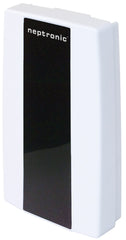
An excellent provider of heating control devices, thermostats, and gas leak detectors. Neptronic SAR24GV can help you maintain an acceptable level of CO2 and humidity in your home.
All of these devices have excellent durability and, in many cases, extended warranty. However, they require regular care and calibration.
Gas Detector Maintenance
You should maintain your gas detectors to maximize their service life and maintain accuracy. For example, sensors become less susceptible to gases after prolonged use, which reduces the ability to detect dangerous gases. Safety should be your top priority, and that’s why it’s necessary to perform regular calibration.
You can learn how to calibrate a gas detector from the product’s instructions manual. Alternatively, you can call professionals that can fine-tune your sensors for you.
Conclusion
Fixed and portable gas leak detectors are critical for homes, offices, and, especially, industrial environments. They will keep your property and other people safe by notifying you about gas leaks, smoke, toxins, and other hazardous pollutants.
Check out Blackhawk Supply for our selection of gas detectors and all-in-one sensors today!
